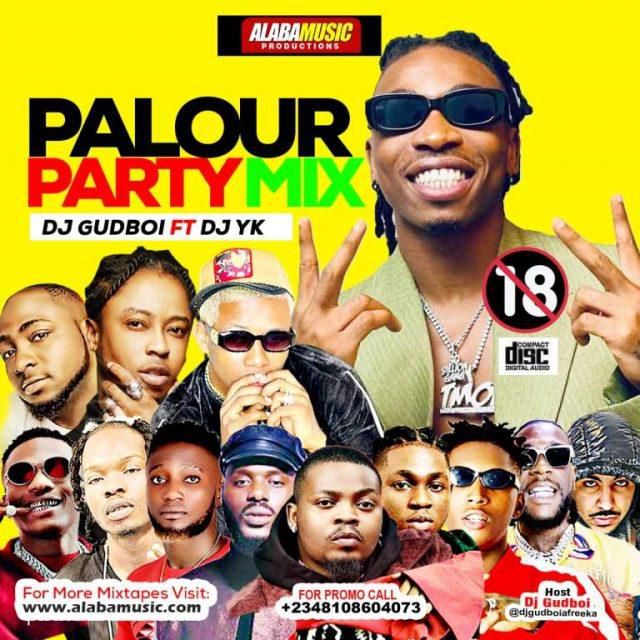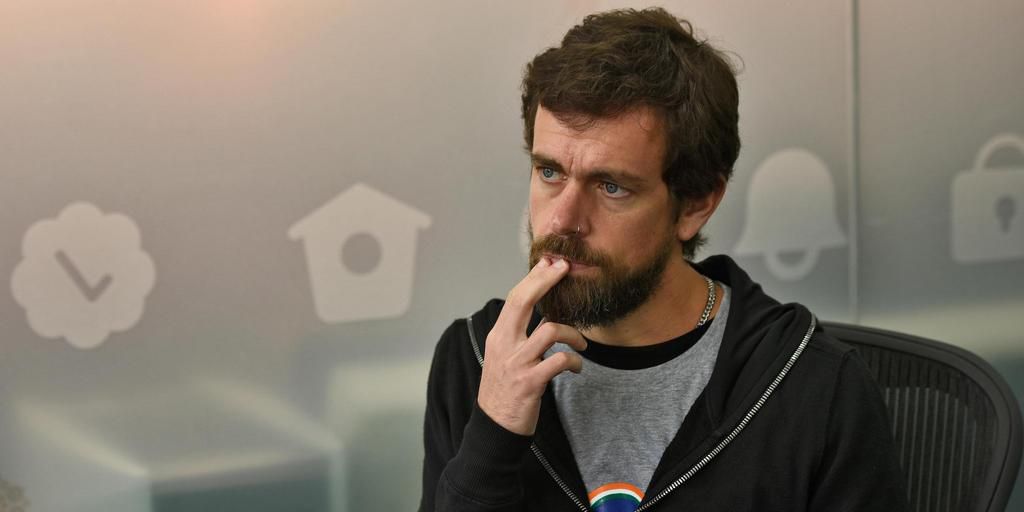What do playlists tell us about music streaming and music consumption in Africa? [Pulse Comment]
)
In 2020, several platforms reported that streaming accounted for between 65-75% of direct global music sales revenue in 2020. Statistica reports that the revenue generated by streaming increased by around 9% year-on-year.
Streaming disrupted the music industry, our patterns of music consumption, music marketing and even consumer behaviour. It succeeded in aggregating content by easy accessibility - Steve Job’s dream. It also controls the rate of space consumption on our devices as opposed to downloads.
These days, ‘organic’ is now a myth in the streaming world. The best an artist can do is make great music that appeals to an audience before he plans his roll-out and the strategy that can sustain his music. That’s why artists pitch streaming platforms around one month pre-release of their singles and bodies of work.
Asides from banner placement, interviews and annotation of the music, the major thing they pitch for; playlists.
The power of playlists

There is nothing like a ‘playlist’ if it can’t break artists on its own. The concept of playlists has long been entrenched in Nigerian music business and music marketing. In the 90s and - especially - 2000s, Alaba DJ mixes were playlists that provided mileage, penetration and impact for the music.
A source tells Pulse Nigeria that, “We didn’t just use to pitch the album, we also wanted to know the DJ mixes that our singles could get on. Some of these playlists/DJ mixes broke all of your popular artists. They travelled farther than artists ever could and gave the music staying power.”
While the music blog era sort of abridged that reality, music streaming has brought back the power of playlists.
Spotify - especially - and Apple Music are known for their carefully curated playlists. Spotify has powerful, desirable playlists like Rap Caviar, Chill Hits, Beast Mode, Top Gaming Hits and Hyperpop that have been known to break artists.
Rap Caviar is so big that it’s gone from Tuma Basa’s baby to taking on a life of its own. It has its own social media pages and conducts interviews of its own.
Audiomack also has playlists, but its major strength is that ‘trending’ page, a pseudo-live playlist page that’s been known to break artists as well. Apple Music’s playlists like Africa Now and Africa Rising have also been instrumental in the rise of careers like Omah Lay, Oxlade, Joeboy, Rema, Tems and more.
On the horizon are YouTube Music’s carefully curated playlists that are inspired by genres, artists, location, time of the day, mood, occasion and more. YouTube Music also strategically pushes its playlists. Whenever you click on some artists’ profiles, you will see all the major playlists that they feature on.
ALSO READ: Spotify in Nigeria
Boomplay’s playlists are designed to feel like music players. Like Audiomack, it’s no surprise that the Nigerian mainstream gravitates towards them.
The presence of playlists also means that music consumption has become algorithmic. The advent of EPs, playlists and downloads on music blogs proves that the Nigerian attitude to long bodies of work can be quite sinister, especially when they’re not created by major artists or niche artists with a dedicated fanbase.
For the longest period of time as well, Nigeria was a singles market because singles guaranteed artists exposure, the elusive ‘blow,’ endorsement and cool live performance revenue. While we’re not back to being a ‘body of work market,’ we mostly now make EPs due to oversaturation of music and short attention spans.
Playlists introduce artists to the music and even the bodies of work. The popular playlists also have a dedicated following that relies on them for music discovery.
In 2016, BBC reported that, “Playlists account for 31% of listening time across all demographics, while albums lag behind at 22%.”
In 2019, Ozy spoke with Yoel Kenan, the CEO of AFRICORI about Afriquency, a music and playlist curation platform. While AFRICORI, a digital distribution and label services company heavily invests in bodies of work, it understands the power of playlists.
In a June 2021 article, Vox reports that, "In 2017, 68 percent of all listening on Spotify was from a company or user playlist, according to the company’s 2018 Securities and Exchange Commission filing. Its platform has more than 4 billion playlists, 3,000 of which are owned by Spotify, curated by a mix of algorithms and editors."
In Africa, BBC’s numbers which reflect a preference for playlists might have exploded since 2016. In 2020, Naijaloded, a music blog which mostly pushes singles, had 2.2 billion unique hits.
In 2020, Martin Nielsen of Mdundo also tells Pulse Nigeria that over the preceding three years, over 150 million Africans had downloaded music illegally and around half were from Nigeria. All this points to a preference for songs and playlists, not albums directly.
These days, TIDAL has joined the race. On July 1, 2021, the streaming platform which launched its Nigerian operations in 2020 announced a special Africa-dedicated page and it contains the following playlists;
- On Africa Now, you’ll be able to the biggest hits and freshest sounds from across the content
- Afrobeats Heat is home to the biggest musical movement to come out of Africa in recent years. While Nigerian and Ghananian artists set the tone, artists from across the continent jump on the beat, keeping the style fresh and evolving.
- From Kinshasa to Abidjan, Libreville to Lome, Yaoundé to Ouagadougou, catch up on the latest hits that connect West and Central Africa, from coupé decale to rumba, R&B to trap and beyond- all on l'Afrique: Top Francophone hits
- The hottest songs from Nigeria are on Naija Hits, while Mzansi Hits is home to South Africa’s finest. From Guinea to Senegal, Mali to Gambia, tune in to the exciting sounds of contemporary Mandinka and Wolof pop music on Sabar & Kora: Senegal, Mali, Guinea & The Gambia
TIDAL’s playlists and PlaylistGATE
Like other Africa-dedicated playlists, TIDAL’s playlists are geograpically inclusive and they reflect the diversity and variations of African pop music - Africa Now and Naija Hits especially. On Naija Hits, we have acts like Omah Lay, Ruger and CKay share the floor with Northern Nigerian sensation, Hamisu Breaker.
However, the list needs constant updates. ‘Duduke’ in 2021? Come on,
What gives a playlist influence is its ability to spot hits beforehand, not just cram popular songs onto one playlist because of traffic and a need to give your powerful playlists some visibility. Proper sequencing can help a playlist weave obscure gems in between the more popular acts. The obscure gems don’t have to be at the base of the ‘popping’ playlist.
They can be between Omah Lay and Rema.
This is how DSPs must also look at Hip-Hop playlists. The more obscure Rap songs also deserve placement. Yes, 60% of Africa’s population is under 25 and they prefer the Trap, Emo, Cloud Rap and Drill records, but the more atypical Hip-Hop records from acts like AQ, MI Abaga or Khaligraph Jones can be woven in-between the more in-demand subgenres of Rap music.
What’s funny though is how most of these DSPs have been regurgitating names. Apple Music has Africa Now and Africa Rising; YouTube Music has Afrobeats Now; Spotify has African Hit, Afrobeat Essentials and RADAR Africa; TIDAL has Africa Now, Naija Hit and Afrobeats Heat.
While SEO will aid discovery, there has to be more creativity and uniqueness to how playlists are named. The sad thing though; there are cadres to playlists based on impact and subscribers/followers. The smaller playlists aren't as desirable as the bigger ones though, to either the artist or the larger audience.
The probable future of playlists
In my article about Spotify's entry to Nigeria, I described a veritable model that DSPs need to explore - the need to move like social media platforms, where interaction can be had. In Nigeria, social media has become the leading music discovery tool in the world because, although aided by influencer marketing, most of its power is democratized.
That's why Instagram and now Snapchat have bagged a deal with the majors for music. It's leverage on the creator economy.
People also trust people like them. The moment DSPs can democratize playlists, have in-app interaction platforms where music can be suggested, discussed and aggregated by an AI, some decent playlists will be created. People should also be able to follow each other.
The moment AI starts suggesting music based on the patterns of people you follow or when other people can track what certain people listen to, DSPs can then create playlists off choices in a particular cycle. These would be more organic than what we currently have, which seems very 'positioned.'
This model will give the artist more of an identity than just the music.
Problems with TIDAL

TIDAL could be set for some major disruption of the creative industry after being acquired by Jack Dorsey. A few weeks ago, Trapital analysed how a synergy could work between Dorsey’s creative sector-targeted endeavours like Cash App, Twitter, Revue and TIDAL.
Dan Runcie opined that ecosystem flywheels aid streaming platforms and the impact of companies and he was right. The same model is working for Amazon, Apple and Transsion. They have different product chains which aids penetration and customer acquisition.
However, TIDAL has a branding problem, not exactly a product problem. While TIDAL reportedly pays handsomely and offers lossless and Hi-Fi cadres which many streaming platforms are now emulating, the brand comes off as ‘elite’ or even elitist. The average African person doesn’t exactly think of TIDAL when he needs a streaming platform.
A little under a year ago, TIDAL launched in Nigeria with a smart, potentially disruptive partnership with MTN Nigeria. But since then, little has been heard about the brand and what it stands for while Spotify has cruised to a reported 100,000 subscribers in less than a year.
The company needs to rethink its celebrity-led approach, which pushes a creator-centric brand but alienates potential consumers. You can’t be too ‘cool’ for a market that doesn’t care about ‘cool.’
You have to rethink it; take TV ad placements with mainstream celebrities like Nollywood actors, make some major text-based ad noise and stop being aloof.

)
)
)
)

)
)
)
)
)
)
)
)
)
)